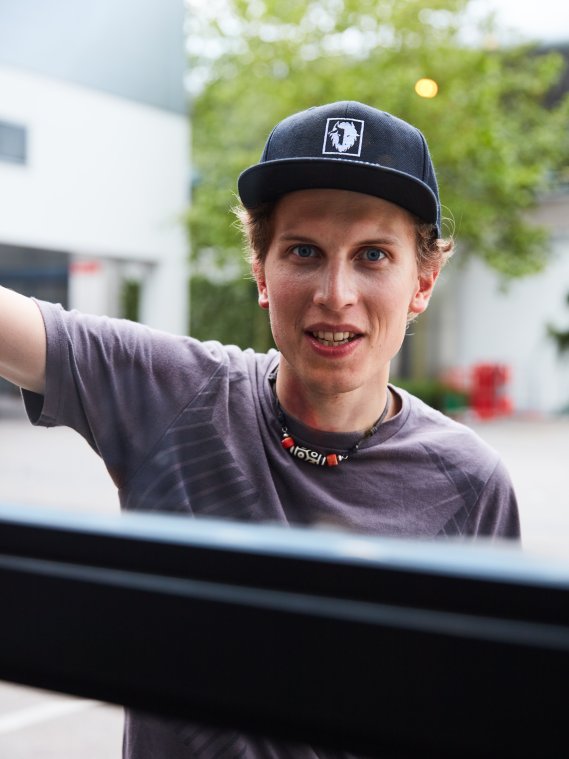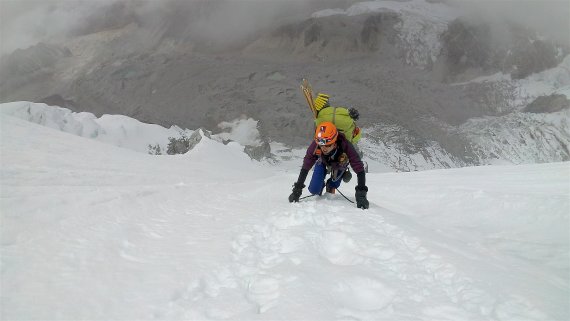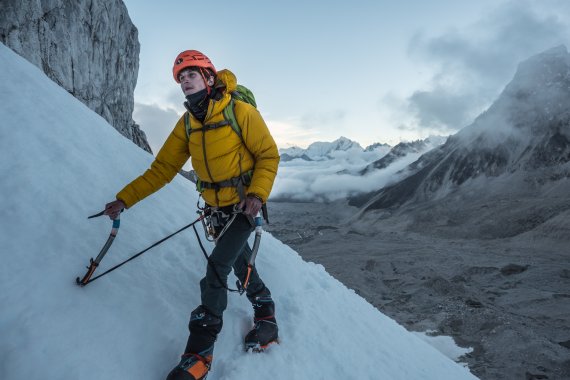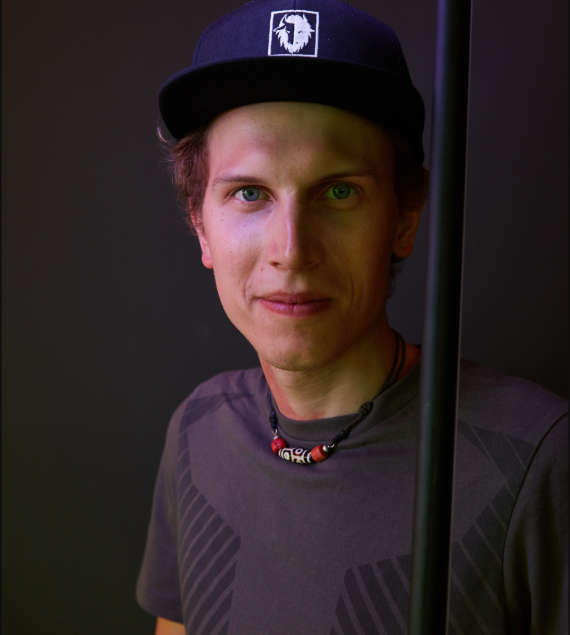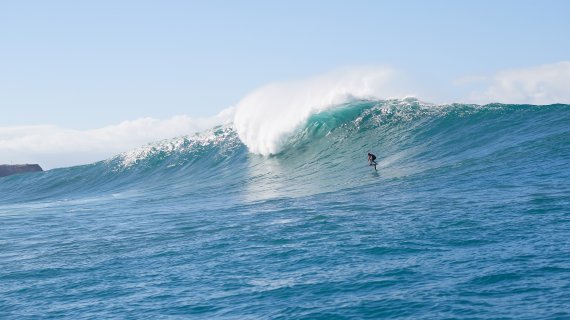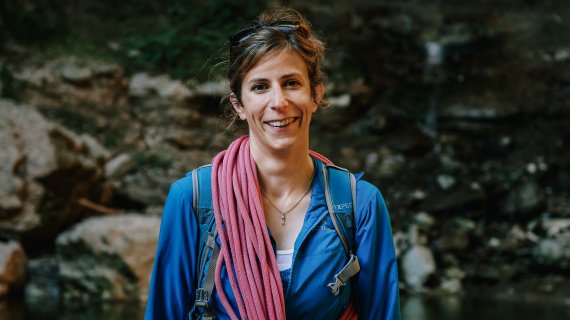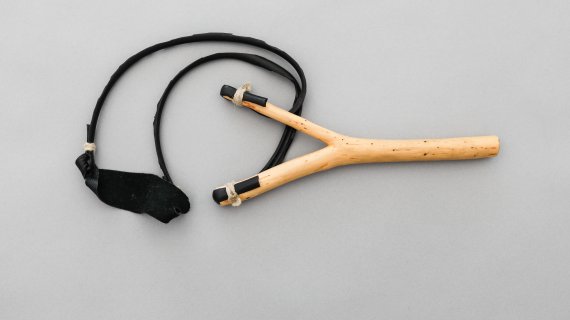Those who allow failure to happen, get further up?
Here, too, the point of view is important. I'm not failing, I just haven't made it yet. Because I know I'll come back someday. I know I'll keep trying until I succeed.
Why are concrete goals like the summit important?
You're really putting yourself through a lot up there. And to endure that, you need a goal. By the way, it's the worst thing when you reach your goal, because you're finishing it. But at the end of the day, you just climb some meaningless, ice-covered pile of stones. In a few years, nobody's going to care what you did. That's why you have to give your project its own meaning. Actually, it's about giving your life a direction. To live in such a way that you have no regrets.
You are on your way alone and without any support, "by fair means", as they say on the mountain. Here, more and more people are using the infrastructure in the high alpine region or riding up the mountain on e-bikes. What do you think of this attitude?
I don't mind e-bikes at all. You have to decide for yourself how to move on the mountain. What I find much worse is that more and more cable cars are being built to bring more and more people to the mountains. I think there's a lot lost. That's not good for nature and not for the experience of the individual.
